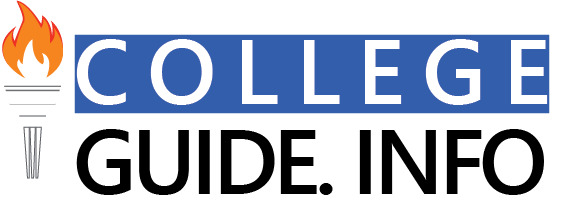





10 Interesting Facts about Wenatchee Valley College
- Wenatchee Valley College (WVC) is a public community college located in Wenatchee, Washington, United States. It serves the communities of Chelan, Douglas, and Okanogan counties.
- The college was established in 1939 and is accredited by the Northwest Commission on Colleges and Universities.
- WVC offers a variety of programs, including transfer degrees, professional-technical degrees and certificates, and adult basic education. Students can choose from fields such as business, nursing, agriculture, computer science, early childhood education, and many others.
- The college has two campuses: the Wenatchee campus and the Omak campus. The Wenatchee campus is the main campus and offers a wide range of programs and services, while the Omak campus provides educational opportunities for residents in Okanogan County.
- WVC is known for its strong agricultural programs, reflecting the importance of agriculture in the region. The college offers degrees in viticulture and enology, horticulture, and sustainable agriculture.
- The college has a vibrant and diverse student population. It provides a supportive and inclusive environment for students of all backgrounds, ages, and abilities.
- WVC offers numerous student support services, including academic advising, tutoring, career counseling, and assistance with financial aid and scholarships. The college is dedicated to helping students succeed academically and personally.
- The college has a strong partnership with the local community and works closely with local businesses and industries. This collaboration helps ensure that WVC’s programs are relevant and aligned with workforce needs, providing students with valuable career opportunities.
- WVC has a range of extracurricular activities and clubs for students to get involved in. These include student government, cultural clubs, academic clubs, and sports teams. The college also hosts events and cultural activities throughout the year.
- WVC is committed to lifelong learning and offers continuing education programs for adults, community members, and professionals. These programs include personal enrichment courses, workforce training, and professional development opportunities.
Admission
Acceptance Rate
100%
| SAT Range | — |
| ACT Range | — |
| Application Fee | $0 |
| SAT/ACT | — |
| High School GPA | — |
Students also applied to ..
Big Bend Community College
Spokane Falls Community College
Columbia Basin College
Tuition & Fee
| Number of Credits | Washington Resident | Non-State Resident | Non-US Resident |
| 1 | 119.13 | 135.04 | 306.92 |
| 2 | 238.26 | 270.08 | 613.84 |
| 3 | 357.39 | 405.12 | 920.76 |
| 4 | 476.52 | 540.16 | 1227.68 |
| 5 | 595.65 | 675.20 | 1534.60 |
| 6 | 714.78 | 810.24 | 1841.52 |
| 7 | 833.91 | 945.28 | 2148.44 |
| 8 | 953.04 | 1080.32 | 2455.36 |
| 9 | 1072.17 | 1215.36 | 2762.28 |
| 10 | 1191.30 | 1350.40 | 3069.20 |
| 11 | 1250.24 | 1410.19 | 3135.81 |
| 12 | 1309.18 | 1469.98 | 3202.42 |
| 13 | 1368.12 | 1529.77 | 3269.03 |
| 14 | 1427.06 | 1589.56 | 3335.64 |
| 15 | 1486.00 | 1649.35 | 3402.25 |
| 16 | 1544.94 | 1709.14 | 3468.86 |
| 17 | 1603.88 | 1768.93 | 3535.47 |
| 18 | 1662.82 | 1828.72 | 3602.08 |
| > credits | 106.88/credit | 106.88/credit | 294.67/credit |
| > 19+ credits | 16.03/credit | 44.20/credit | 44.20/credit |
All programs
Allied Health Overview
Chemical Dependency Studies
Emergency Medical Technician Course
First Aid & CPR
Medical Assistant
Medical Lab Technology
Medical Terminology
Nursing Assistant
Nursing
Bachelor of Applied Science in Nursing (RN to BSN)
Bachelor of Applied Science in Nursing (LPN to BSN)
Pharmacy Technician
Radiologic Technology
Workforce Programs
Exercise Science/Health
Exercise Science
Nutrition
Sports Medicine
Early Childhood Education
Early Childhood Education
Bachelor of Applied Science in Teaching (BAS-Teaching)
Criminal Justice
Criminal Justice
Fire Science
Fire Science
Students
Full-Time Enrollment
1,831 Undergrads
Part-Time Undergrads
830

